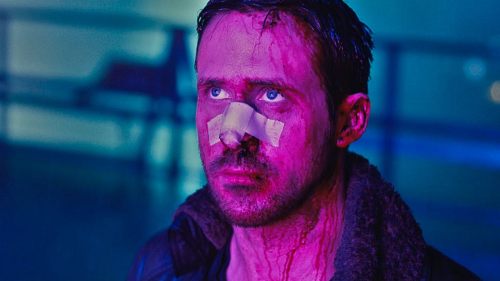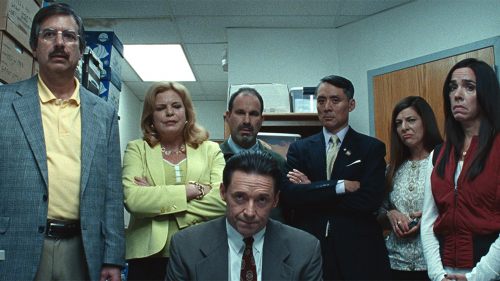THOROUGHBREDS Review: Breeding Sociopathy Into The Upper Class
[This review contains some minor spoilers that weren't present in the film's marketing but are necessary to discuss what the film is even about. If you'd prefer to go in blind, know that the film is a really good first feature outing for writer-director Cory Finley.]
It's a pretty obvious truth that one's upbringing has a major impact on one's attitudes and emotional development, and the impact of wealth or the lack thereof on a young mind is perhaps the most formative of influences outside of the direct impact that parents can have. Thoroughbreds is bereft of strong parental influences, so its protagonists are left to their own devices in environments of opulence and class, and we come to them at the culmination of young lives where this has formed them into human beings who perhaps lost some of that humanity in the process of growing up. That moral defect is the main subject of interest for the film, and Cory Finley has plenty to say about the ways in which his characters didn't develop necessary emotional connection.
The film opens on a tutoring session between childhood friends Amanda (Olivia Cooke) and Lily (Ana Taylor-Joy), who have drifted apart over the years but have been pushed back together to help Amanda prepare for high school standardized tests. As the pair reconnect, Amanda convinces Lily to drop the façade of being a prim academic and admit that Amanda's mother bribed Lily to tutor her, and the pair abandon their academic pursuits to rekindle their dormant friendship. As they spend time together, Lily's stepfather Mark (Paul Sparks) continually shows up and proves himself a self-centered ass, so the pair start to contemplate the possibility of murdering him.
If that seems like an extreme conclusion to come to when dealing with a man whose biggest offences are alpha male territorialism and possessiveness—let's be clear, Mark is not a good guy here—you would be right for anyone other than Amanda and Lily. Both are emotionally deficient in ways that promote this sort of plotting, and the cause seems to be their access to resources and their entitlement through those resources. Lily clearly understands the worth of a human life and the attendant guilt she would have if she were to follow through with killing Mark, but she also has a lot to lose from the threat of being cut off from her stepfather's wealth and she wants to remove herself and her mother from Mark's domineering influence. Amanda, on the other hand, has a self-professed lack of emotions and looks at morality as a sort of calculus where a bad man like Mark can be eradicated for the purpose of excising his bad influence on the world, so while she understands the risks attendant in killing someone she doesn't quite understand the problem with doing so for a greater good. To Amanda, Mark is like nothing more than an animal in need of being put down, by whatever means necessary.
The resulting film feels something like what Sofia Coppola might make if she were ever inclined to make a murder thriller, though Coppola doesn't quite have the dark wit Thoroughbreds exhibits throughout. Blank stares and expectant pauses punctuate much of the dialogue to demonstrate just how off Amanda and Lily are, and while we certainly aren't meant to view their pursuits as noble, we are encouraged to empathize with them with a capacity that the characters themselves lack. This especially comes into focus as Amanda and Lily rope in a local low-level drug dealer (the last role for the late Anton Yelchin) to assist in their scheme, whose righteously shocked reactions to their callousness serve as a grounding influence in a film drowning in surreal perspectives.
Though Thoroughbreds isn't exactly a film that promotes meditation after the credits roll, it's a rich experience that showcases the immense talents of its small cast and crew. It makes its point rather bluntly and places enough faith in you to walk away with the idea that wealth is a corruptive influence on moral perspective, so while there isn't much more to it than that, there doesn't need to be. It's a very well performed film with fiercely funny moments, well worth the time on the big screen simply to promote the small film's release in that format. More than anything, I see Thoroughbreds as an indicator of Cory Finley's potential as a filmmaker, and I'm completely there for whatever he does next.



